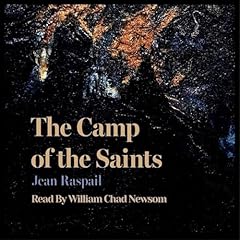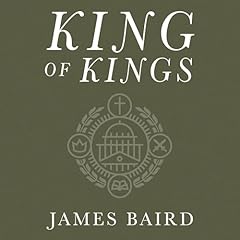
The Case for Colonialism
No se pudo agregar al carrito
Add to Cart failed.
Error al Agregar a Lista de Deseos.
Error al eliminar de la lista de deseos.
Error al añadir a tu biblioteca
Error al seguir el podcast
Error al dejar de seguir el podcast
Obtén 3 meses por US$0.99 al mes
 Exclusivo para miembros Prime: ¿Nuevo en Audible? Obtén 2 audiolibros gratis con tu prueba.
Exclusivo para miembros Prime: ¿Nuevo en Audible? Obtén 2 audiolibros gratis con tu prueba.
Compra ahora por $20.78
-
Narrado por:
-
Warren du Plooy
-
De:
-
Bruce Gilley
“For the last hundred years, Western colonialism has had a bad name.” So began Professor Bruce Gilley’s watershed academic article, “The Case for Colonialism,” of 2017. The article sparked a global furor. Critics and defenders of Gilley’s argument battled it out in the court of public opinion. The Times of London described Gilley as “probably the academic most likely to be no-platformed in Britain.” The New York Times called him one of the “panicky white bros” who “proclaim ever more rowdily that the (white) West was, and is, best” and are “busy recyclers of Western supremacism.” In this book, Gilley responds to the critics and elaborates on the case for colonialism. The critics have no evidence for their claims, he asserts. The case for colonialism is robust no matter which colonizer or colonized area one examines. Patient, empirical, humorous, and not a little exasperated by anti-colonial ideologues, Gilley here sets a challenge for the next generation of scholars of colonialism. “It is time to make the case for colonialism again,” he writes.
©2023 Bruce Gilley (P)2024 New English Review PressLos oyentes también disfrutaron:




















Las personas que vieron esto también vieron:


















Good but could be better
Se ha producido un error. Vuelve a intentarlo dentro de unos minutos.
Loads of Fun
Se ha producido un error. Vuelve a intentarlo dentro de unos minutos.
The honesty was favorite part.
Se ha producido un error. Vuelve a intentarlo dentro de unos minutos.
Bruce Gilley was wounded in the battle that began when his peer reviewed article, with the same name as this book, appeared in the Third World Quarterly. The first quarter of this book is an expression of those wounds. But the final three quarters are products of intensive scholarship and research. When Noam Chomsky - someone who'd agree with Gilley about nothing - is among very few intellectuals to oppose the removal of Gilley’s original article, you know something is horribly askew. But Chomsky, in his mid-90s now, comes from an academic tradition that’s vanishing. It was one of spirited debates. Chomsky, a genuine genius in the field of linguistics and an outspoken advocate of far-left political views, relished it. His appearance on Firing Line opposite William F. Buckley, Jr., was legendary.
Western Civilization is the product of thousands of years of such debates. What Gilley’s book reveals, more than just facts and supporting statistics, is the end of reasoned debate itself. This is what makes reading the book so painful. There’s a tyranny here, what Timothy Snyder calls, obedience in advance. People agree to comply before even being asked. They fear doing otherwise regardless of what they either think or believe. In this case, colonialism is not just bad, it’s an atrocity. End of discussion.
The language used to describe Gilley by his critics is emotionally hostile and packed with hyperbole and evidence-free assertions of bigotry and genocides. Filled with juvenile insults and absence of any facts, many of his critics have no interest in improving the lives of anyone. Rather, they make their reputation and their living by perpetuating the very ills they relish highlighting and fabricating. Such is the morality of pity; the pitied must stay pitiable. It is a dubious and decadent ideology, exploiting the alleged victims of colonialism more than what they claim colonialism itself ever did.
The entire discussion is tainted by the persistence of the long-disproven belief that there are multiple races of human beings. This is a false idea. Yet the word, racism, persists. Race, as a concept, is toxic. And it’s not one of those toxins like, say, Digitalis, where a tiny amount can save a life. Can snap a heart out of atrial fibrillation. Race, however, in any quantity, is poison. Thus, when I hear the word, I wonder if the person who relies on it isn’t, in fact, the true bigot.
As depressed as I felt after reading this book, I was nonetheless glad I did. It took courage to write it, more courage than I have certainly.
Hell is the Impossibility of Reason
Se ha producido un error. Vuelve a intentarlo dentro de unos minutos.


